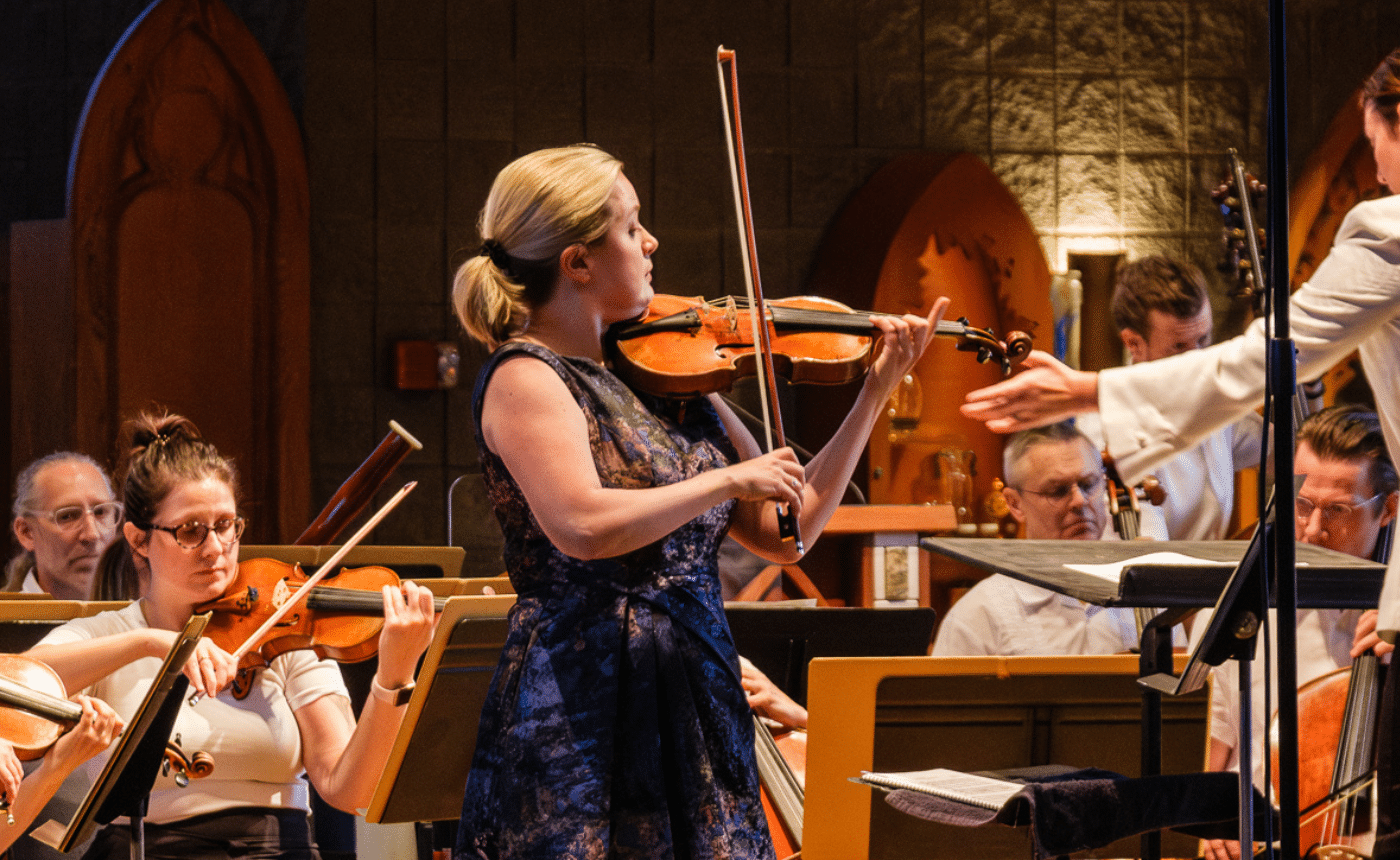Mozart – Symphony No. 41 in C Major “Jupiter”
By Jeff Counts
Instrumentation: flute, 2 oboes, 2 bassoons, 2 horns, 2 trumpets, timpani, strings.
Duration: 31 minutes in four movements.
THE COMPOSER – WOLFGANG AMADEUS MOZART (1756-1791) – Mozart’s last known letter to his sister Nannerl dates from August of 1788 as the death of their father the year before seemed to have severed what had held them together as adults. Mozart was poor and a bit desperate but becoming productive again. His last symphonies date from this same period and No. 41 was completed just eight days after the letter.
THE MUSIC – Mozart wrote his final three symphonies (39, 40 and 41) in a span of less than three months during the summer of 1788. Taken as a set, these works represent a diverse summary of Mozart as a mature artist as well as the late 18th century possibilities of the symphony form itself. Not unlike Haydn 104 (another “final” symphony written only a few short years later), Mozart 39, 40 and 41 are often viewed today as a foreshadowing of the symphonies of Beethoven, though 41 might have the fewest “baton-passing” qualities of the lot. As last symphonies go, No. 41 doesn’t feel valedictory, it just feels brilliant. Listening to this music makes one ponder the possibilities of No. 42 rather than reflect on journey of Nos. 1-40. Mozart was enduring a rather nasty personal period in 1788 and though his Symphony No. 40 projects this clearly with its turbulence and darkness, No. 41 is surprisingly bright and noble. There are at least two different opinions about who first called this symphony “Jupiter” but we do know that, like in so many cases throughout music history, it was not the composer himself. Whatever the source may be, the moniker stuck and the regally named “Jupiter” might well be the final and best icon of the Classical era symphony and is a fitting capstone on the legend of one of its undisputed masters, even though he might not have intended it as such.
THE WORLD – The “Day of the Tiles” occurred in 1788, an event many credit as the start of the French Revolution. Cyrus Griffin became the 10th and final President of the United States Continental Congress. And Sydney, Australia was established by British colonists.
THE CONNECTION – Surprisingly, Mozart 41 has not appeared on a Utah Symphony Masterworks program since 1995. Joseph Silverstein conducted.












